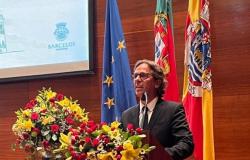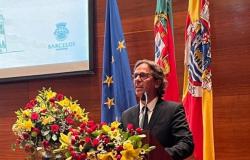Until recently recognized by some as the socialist paradise of Europe, Portugal in a space of less than eight years went from the coalition system between left-wing parties, which became known as Geringonça in 2015, to an absolute majority of the Socialist Party in the last elections in 2022, until the most recent government crisis which, after a very suspicious corruption allegation, led to new elections being called, and saw the rise of the extreme right in the country consolidated.
:: The challenge for the winning party in Portugal is not to repeat the example of the PSDB with the extreme right, says analyst ::
Characterized by a semi-presidential regime, nothing seemed to be able to affect the absolute majority government of the Socialist Party after the last elections. Portugal’s economic and financial results seemed to outperform the rest of Europe; stable growth rates, controlled inflation and a government that, with confidence in international capital, made every effort to pay and reduce the debt. During the Socialist Party’s government period, Portugal also saw a considerable increase in the minimum wage.
In a few hours, on October 7, 2023, a government that seemed to be unshakable fell after a mega judicial operation that involved searches of offices, several companies, city halls and also ministries. It was Operation Influencer and interesting parallels can be drawn from it with the Lava Jato operation in Brazil. The inquiry that mentioned the name of António Costa as one of those involved made the prime minister feel forced to resign.
A few days later, the investigating judge dropped the charges against the prime minister, claiming that the suspected wiretapping involved another António Costa and not the current Prime Minister. It was already too late: by that time not only had the resignation been completed, but the President of the Republic Marcelo Rebelo de Sousa (PSD) had already gone ahead in calling new elections for March 10, 2024.
The elections, which were called to guarantee new stability and government legitimacy, would end up resulting in the opposite. There was no clear winner between the right-wing coalition AD – Democratic Alliance, led by the Social Democratic Party (PSD), and the Socialist Party. The last votes are still being counted, but each formation received 28.6% of the votes. The elections, however, were marked by the enormous rise of the extreme right, which in two years rose from 7% to 18%, and saw its number of deputies quadruple to 48.
After the fall of the fascist regime and the April revolution, Portugal did not have far-right representatives in its parliamentary seats for 45 years. However, although this growth is enormous, it was not entirely a surprise, as we have seen a considerable increase since 2019. Given this situation, the country follows the rising trend of the populist extreme right in other European countries.
The far-right party Chega, led by former PSD activist André Ventura, has grown on the basis of an anti-gypsy, anti-immigration and anti-corruption discourse. Just like in Brazil, he has a deep grudge against left-wing traditions and wants to end the legacies of April 25th in Portugal. Despite the anti-immigration discourse, Chega has also had great support within the Brazilian community in Portugal. One of the party’s new deputies is actually Brazilian.
The rise of the extreme right/radical right can be explained by two essential factors: the first is the latent pre-existence of racism in society and the other is the growing discontent of the population who sees a possibility for change in these types of parties; These factors linked to the left’s inability to present an alternative contribute to the current situation.
The growing discontent with the PS government has been based on rising prices, mainly in the housing sector, affected by speculation and the effects of tourism, and serious problems in the National Health System (SNS), mainly the lack of family doctors, long waiting lists and poorly functioning emergency services. Furthermore, the government was also faced with a growing trend of protest from new unions, associations and categories such as teachers, nurses, doctors and police officers who were demanding salary increases in the face of inflation.
The left, mainly the Left Bloc and the Communist Party, were unable to channel this dissatisfaction, the BE kept its five deputies and the PCP lost two. The results demonstrate that not only were the new movements outside the control of traditional union organizations, but their participation in Geringonça, and the subsequent strategy of collaboration with the PS, took away their credibility in relation to their opposition to the political and economic system.
We therefore see a highly unstable political scenario in the coming months. Neither force had a clear majority, and coalitions do not appear viable. The PS and AD would never form a government to leave the opposition to Chega. Pedro Nuno Santos, leader of the PS, has already stated that the party will be in opposition and will not save a right-wing government. AD leader, Luis Montenegro, on the other hand, defended throughout the campaign that he would not form a coalition with Chega – who during the campaign even called him a “political prostitute”.
Thus, the only possibility would be the formation of an AD government – possibly with the liberals – through the abstention of the PS and/or Chega. But this would be a government without parliamentary support, with almost no legitimacy, and almost no possibility of passing a State Budget in September. It is most likely, therefore, that this government will also fall quickly; and so the country will have new elections.
* Researcher at IEF/University of Coimbra
** This is an opinion article. The author’s vision does not necessarily express the newspaper’s editorial line Brazil in fact.
Editing: Marcelo Ferreira






